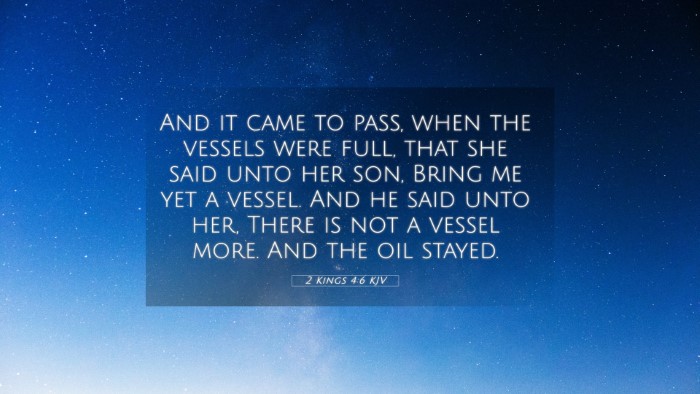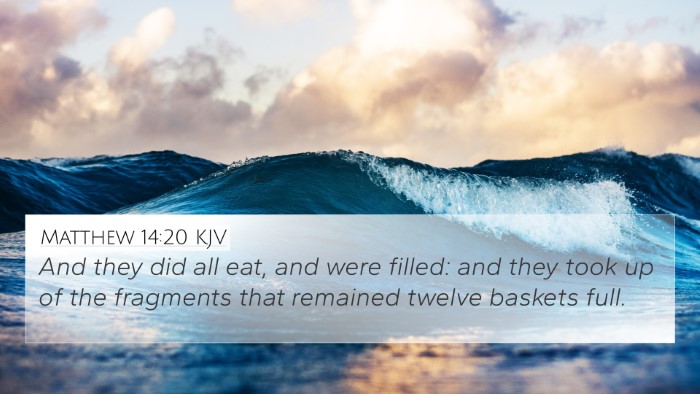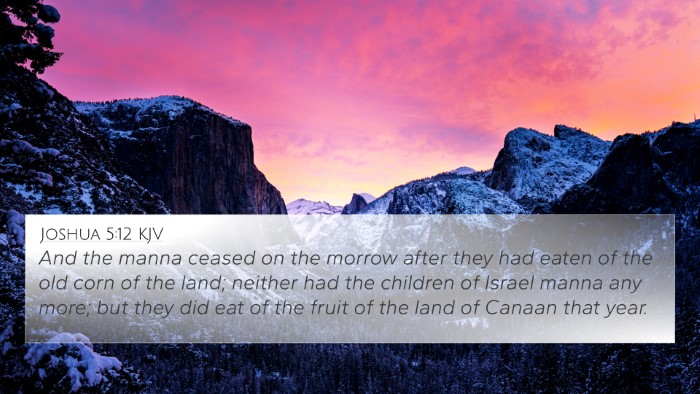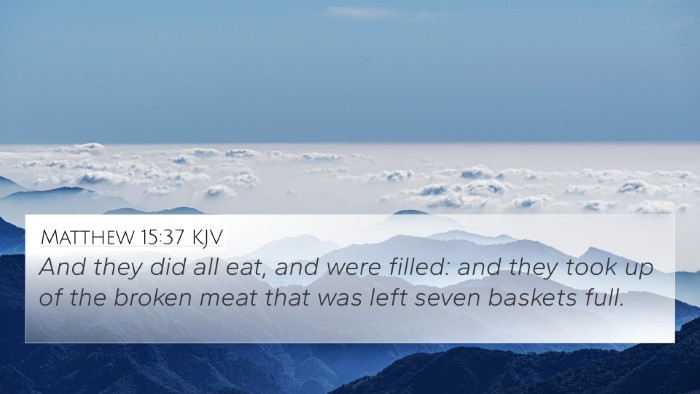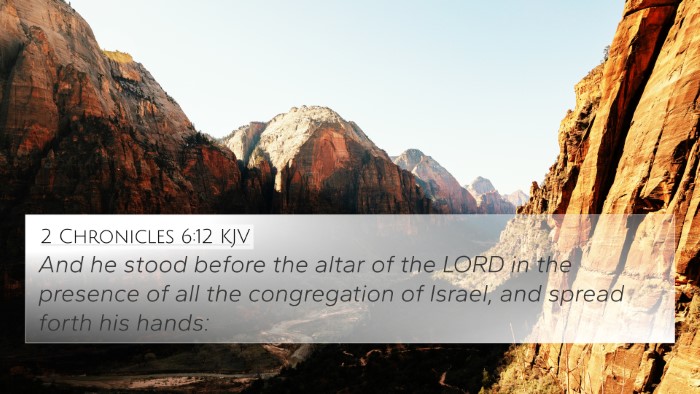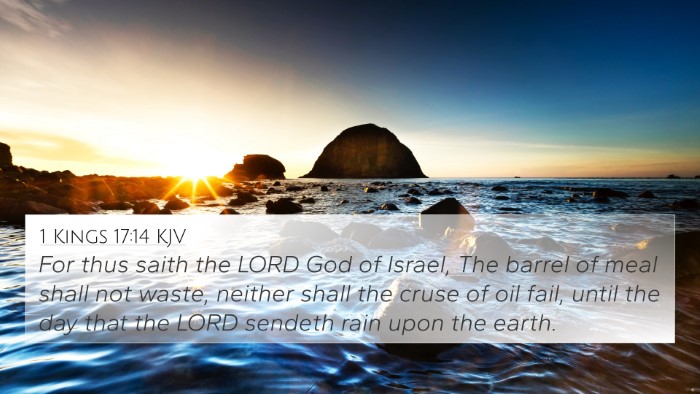Understanding 2 Kings 4:6
Verse Text: "And it came to pass, when the vessels were full, that she said unto her son, Bring me yet a vessel. And he said unto her, There is not a vessel more. And the oil stayed."
Summary of Meaning
The verse 2 Kings 4:6 captures a moment in the miraculous story of Elisha and the widow's oil. The widow, who had been severely burdened by debt and the threat of losing her sons to slavery, was blessed by God through the prophetic ministry of Elisha. With only a small amount of oil, she filled multiple vessels, illustrating God’s provision and abundance.
Insights from Public Domain Commentaries
Matthew Henry’s Commentary
Matthew Henry emphasizes that this passage teaches about faith and the miraculous provision of God. The widow’s obedience in gathering vessels was crucial; she acted on the word of the prophet without fully understanding how the miracle would unfold. The filling of vessels serves as a metaphor for the bounty that obedience can bring in one’s life.
Albert Barnes’ Notes
Albert Barnes highlights that the actions of the widow symbolize the necessity of faith in God’s Word. When the widow ran out of vessels, the oil ceased to flow, indicating that divine blessings are often contingent upon our capacity to receive them. Barnes further comments on the humility of the widow and her trust in God's instruction, which led her to an abundant supply.
Adam Clarke’s Commentary
Adam Clarke points out that the miracle relates to God’s promise of provision in times of need. He suggests that the limitation of oil was due to a lack of vessels; this reflects a broader principle in spiritual life where we must prepare for and expect God's blessings, and that our limitations often stem from our own readiness to receive. Clarke also connects this story to the greater theme of God’s sufficiency amidst human inadequacy.
Theological Implications
The story of the widow’s oil is rich with theological implications surrounding divine provision, faith, and the nature of God's miracles. It encourages believers to trust God's word, prepare for His blessings, and reflects His care for those in distress.
Related Bible Cross-References
- 2 Kings 4:1-7 - The full context of the widow’s situation and the miracle.
- Matthew 14:15-21 - The feeding of the five thousand parallels the theme of God’s provision in desperate times.
- Luke 6:38 - “Give, and it will be given to you” reflects the principle of abundant giving leading to abundant receiving.
- Philippians 4:19 - God's promise to supply all needs aligns with the widow’s experience of divine provision.
- John 2:1-11 - The miracle at Cana showcases another instance of Jesus turning limited resources into abundance.
- 1 Kings 17:8-16 - Elijah and the widow at Zarephath further illustrate God’s miraculous provision in times of need.
- Ephesians 3:20 - God’s ability to do immeasurably more than we ask or think reflects the miracle of the oil.
- Malachi 3:10 - God invites us to test Him in giving, promising overflowing blessings in return.
- James 1:5 - Asking God for wisdom during trials can lead to overflowing blessings, similar to the widow’s story.
- 2 Corinthians 9:8 - Assurance that God is able to make all grace abound parallels with the overflow of oil in the widow’s life.
Practical Application
This verse serves to remind us that faith and preparation are essential for receiving God’s blessings. Just as the widow prepared by gathering vessels, we are encouraged to also prepare our hearts and lives for God’s provision.
Conclusion
2 Kings 4:6 encapsulates a powerful lesson about divine provision, faith, and obedience. This miraculous event highlights the relationship between our readiness to receive and God’s abundant blessings, prompting believers to engage in active faith in their daily lives.

